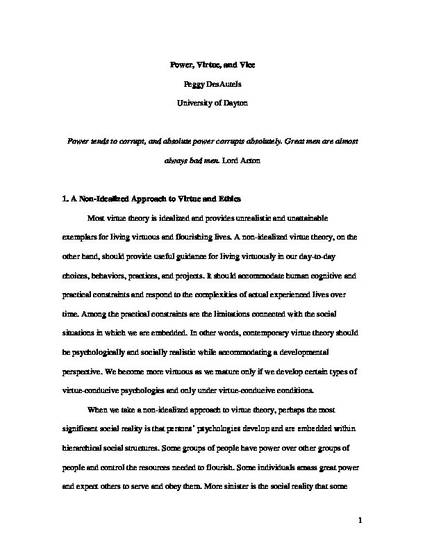
I approach virtue theory in a way that avoids idealized social ontologies and instead focuses on social hierarchies that include relations of power. I focus on the virtues tied to improving social environments—what I refer to as social-ethic virtues—and examine how the development of social-ethic virtues is influenced by motivations for and situations involving power. I draw on research in social and personality psychology to show that persons motivated by power and persons holding powerful social positions tend to behave in ways that correlate with certain virtuous and vicious patterns of behavior. I maintain that patterns of moral or vicious behavior (habits) tied to those in powerful positions are upheld by a combination of motivational dispositions and situational factors and that although a strong and dominating sort of power can corrupt, an agentic power to effect social, political, and institutional change is necessary for the social-ethic virtues.
Available at: http://works.bepress.com/peggy_desautels/25/

This is a pre-copyedited, author-produced version of an article accepted for publication in The Monist following peer review. The version of record is available online at: https://academic.oup.com/monist/article/99/2/128/2563357 or by using the DOI provided.
Permission documentation on file.